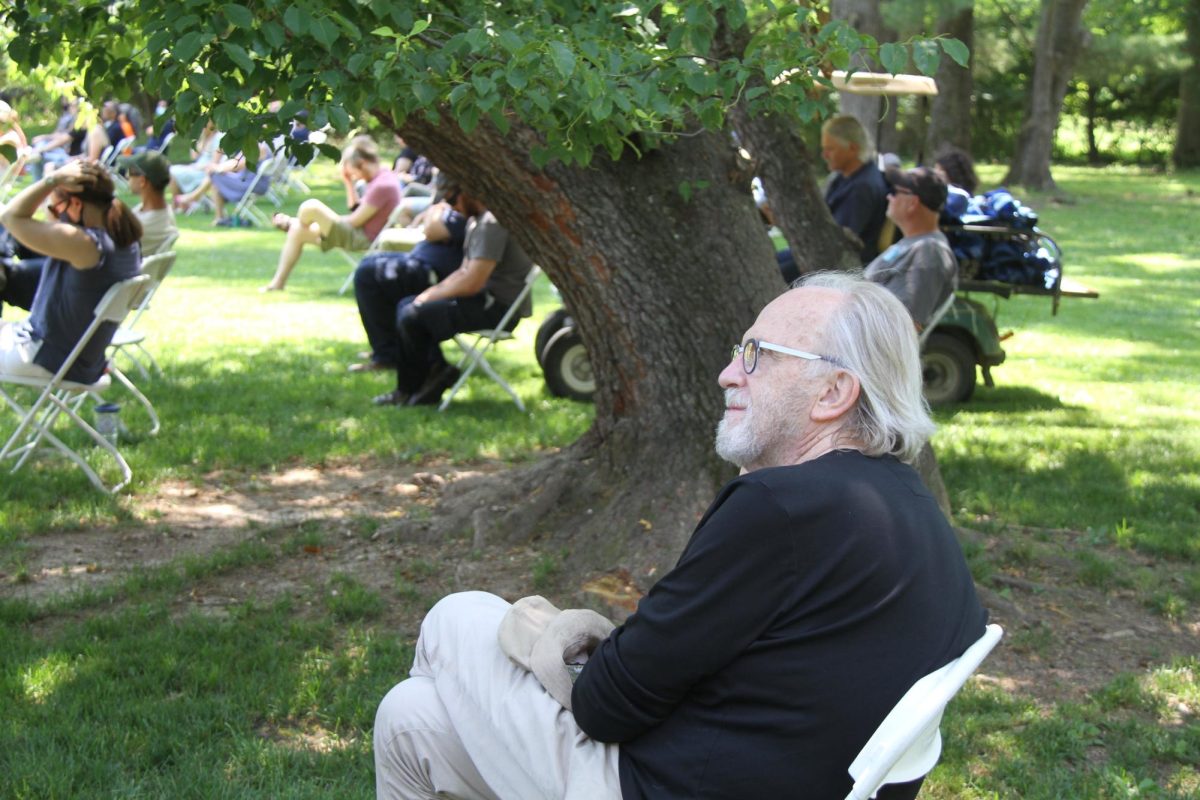“Has society and its pressure dragged us from the here and now to force us ahead?”
October 7, 2015
Deep in the darkened bubbles of a practice SAT, stressed, overworked, and above all miserable, I found myself wondering, why am I doing this? Although the answer may seem quite simple, as I am of course doing this to achieve success, to gain admission to the college of my dreams, to pave the way to future goals, the more I contemplated this idea, which has been greatly engraved in my mind and those of most of my peers, the more I began to question are these good enough reasons to be giving myself to such unfavorable pastimes.
During this quiet SAT revelation, it quickly became clear that so much of my life is filled with things I do solely for the future. The list is endless. And I guarantee many of my peers have litanies of grievances to put mine to shame. It seems as if I have so tremendously emphasized the future and preparing for this magical “someday” that I have left little time to focus on making the present as wonderful as I hope the future to be. Would I really be wasting one of summer’s precious last days on the monotonous questions of a standardized test prep book if this was not entirely the case?
The saddest part of my revelation is that I am not alone. Many of my friends have spent their summers participating in programs at colleges, committing themselves to that “perfect internship,” and studying the material for an upcoming class. Others go on elaborate community service trips or find themselves overstretched in more extracurricular activities than a person could possibly be passionate about, all in attempt to build a résumé for ventures they hope to achieve years from now. I am not suggesting that these things are entirely negative or that no one enjoys them; I am merely questioning whether these things are so enjoyed that they would still be done if preparing for the future was less magnified, less important than reveling in the present.
By emphasizing the future so dramatically, we have stolen from ourselves the opportunity to do what we love now. Year after year, I have seen friends drop a sport, others give up art, and myself quickly abandon writing beyond the requirements of class because we have learned that these activities do not easily lend themselves to applications and because our little free time is already occupied by activities that do. Further, we have lost the ability to try new things, as we worry about how even the slightest failure could cripple ensuing success and have deprived ourselves of time to spend participating in activities we are passionate about or think we may be passionate about. Should our high school careers be oriented in such a way that we are left little time to enjoy other pursuits?
Has our generation brought this upon itself? Have we ruined the opportunity to fully enjoy the present at our own suggestion, or has society and its pressure dragged us from the here and now to force us ahead?
Our focus on the future has caused us in many cases to forget and sacri ce our current wellbeing. Wander through the halls of PDS and ask any student if he or she is tired. Follow up by asking if he or she is stressed. I think we all know what the answers will be. Many studies support the claims you are likely to nd in the aforementioned small sampling. After an analysis of over 1,000 13-17-year-olds and a similar sized group of adults, researchers concluded that teenagers often feel more stressed than their older counterparts. Further, a World Health Organization report states that depression is the most common form of illness and disability for both boys and girls aged 10-19. Of course, I cannot make the claim that all of these negative feelings are caused by our over-preparation for the future, but I maintain the argument that if happiness, quality of life, and well-being in the present was as emphasized as things in the time to come are, these conditions may not only be prevented but also treated much more effectively.
In all of my negativity, though, I must concede that there is great value in planning for the future. Such makes us more driven and responsible and ensures our decisions are not always impulsive. Further, this preparation allows us to prevent our future selves from oundering or needing to scramble. However, our culture and generation has manipulated such preparedness into an overwhelming and all-consuming game, whose strategy often includes ignorance of and total disregard for passion, interests, and wellbeing during the time at hand.
I want to make it clear that thisisnotacalltogocrazy.Iam not suggesting a sort of manic free for all and am not entirely part of the school of thought that promotes constant “living like there is no tomorrow.” But I believe that moderation can and must be achieved. In this idyllic world where future and present are balanced and one, standardized tests will still be administered, studying will still be necessary, and free time may still be sacri ced for the bene t of the future because no matter how much I complain and argue, there is no escape from preparing for this or even a much more pared down form of such. However, focus will drift from what the future may hold to what the present provides – opportunities to nd the happiness we have worked so hard to ensure the time ahead will promise.
Let this be a cautionary tale, a wake up call of sorts, for a generation that has lost sight of who we are now in order to create who we hope we will be. Do we want to look back and regret “the best four years” of our lives?





